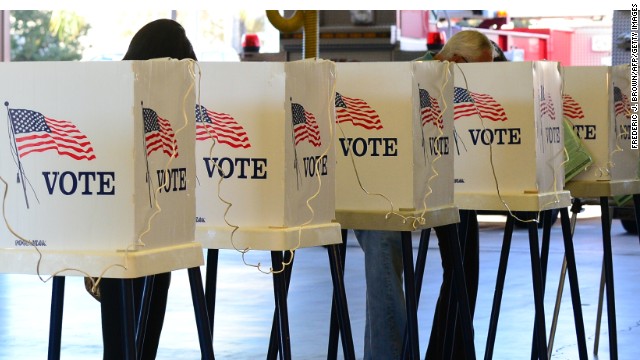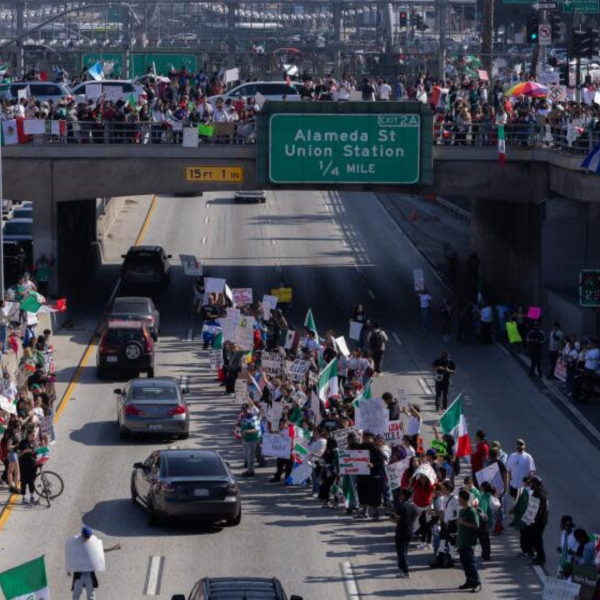Why Americans are not interested in voting
America—land of the free, home of those who do not use their liberty to their advantage. This is a country in which citizens are blessed with democracy and suffrage, a right for which many countries around the world are still fighting. The right to vote is sacred, yet a surprising number of Americans do not bother to use it. On Nov. 4, the midterm elections, during which citizens vote for congressmen, senators, governors and propositions, took place, and only about 36 percent of registered voters cast a ballot in what was a dismally low turnout—the lowest turnout since the 1940s. California’s turnout was particularly low, with a voter total in the 20 percent range. Although midterm election participation always tends to be lower than in presidential elections, California’s turnout was still drastically lower than the national average of voters who showed up. This can be attributed to many causes. Many American citizens are disengaged or dissatisfied with the government, feel that their vote does not hold any weight or possibly are simply too lazy to go out to stand in line and vote.
Maybe the obvious scapegoat would be to blame the youth and say that they are disengaged and not voting. While this is sometimes true, and every young person should register to vote when they turn 18, it is not abnormal for the youth demographic to be low. This is nothing new, and was expected in this election like every other. What was startling was that even the citizens in older age demographics lacked in their usual participation.
“Why people do not vote is complicated,” said United States History, government, and sociology teacher Dave Dillon. “The two big reasons are voter apathy and the belief their vote does not count.”
The lack of voters clearly showed the frustration of citizens with the current government. Voters may feel not only a frustration with the current political climate, but a sense of disconnection from the political process. The disinterest and widespread apathy among the voters is worrying. American citizens in general have a lack of interest. They may not feel the need to vote because they have their general and basic needs met. They may also assume that their vote does not matter or, that even with their vote, the politicians who they are selecting will not make a change anyway.
Americans need to know that their vote is important. However, many are so disengaged that they are uninformed regarding politics and legislature. For example, in a survey of registered voters conducted in 2010, fewer than half of respondents even knew which political party held the majority of the seats in the House of Representatives. The reason for this apathy may be that voters feel that their own vote is unlikely to influence an election. Voters may believe there is no incentive to become informed and understand current government issues because their vote does not carry much weight.
“My parents don’t always agree on whether or not voting is important,” said senior Nikita Kian. “I notice that my mom will go out and cast her vote, but my dad doesn’t, or vice versa. I will be turning 18 soon and since I and the other seniors will be voting in the next presidential election, I think it is important that people know that their vote is important. Our vote is not huge, but we as citizens do have a say in our government.”
Midterm elections are voted on specifically by the people, and majority rules. Voting for who represents the people is a power that only comes around every once in a while, and it is important that Americans use it when it does. The only time that majority does not rule is during a presidential election. During a presidential election, the outcome of whom the people vote for in each state determines a slate of electors who then vote for their choice of president. Many argue that the electoral college system is not democratic, since popular vote does not apply and results may be inaccurate. However, not participating in midterm elections is inexcusable as there is no electoral college. Local legislation and policies will have a greater impact on daily life than federal programs, but the national politics certainly affect more people. Voting in both the midterm and the presidential elections are equally important.
There is a lot going on in the world, and the media influences what the public focuses on. However challenging it may be, it is critically important to understand the issues that impact the community and where the candidates stand on these issues. Although the government and political system may seem daunting, with problems impossible to solve, the government can change. However, this change cannot occur without a push from the people, and voting is that push. Voting is a right and a power that Americans are lucky to have. Being an informed voter is one of fundamental responsibilities of the citizens of the United States.
Your donation will support the student journalists of Calabasas High School. Your contribution will allow us to purchase equipment and cover our annual website hosting costs.







